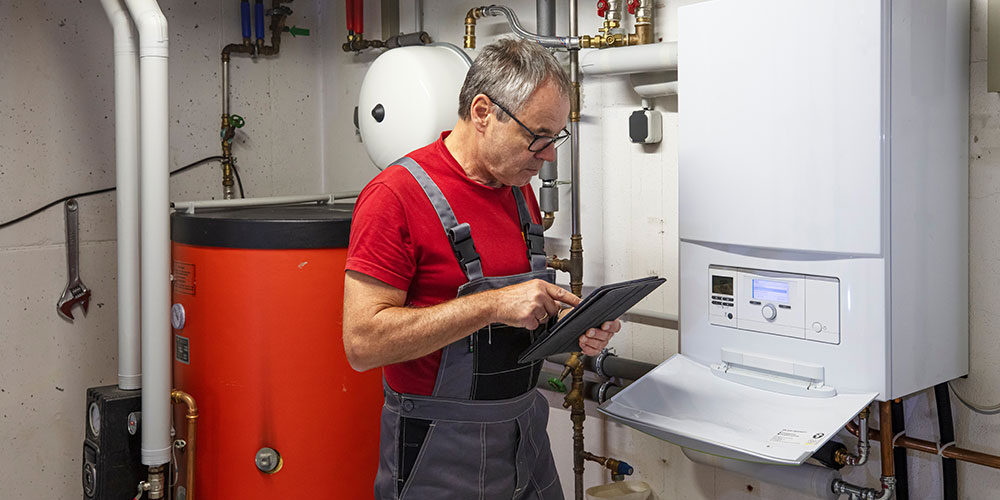Homeowners and landlords might ponder whether they can replace or exchange their boilers after 2025, given the UK’s shift towards more sustainable and eco-friendly energy solutions. With the nation implementing new policies to phase out gas fuel-dependent boilers, it is crucial to understand your options and the available alternatives for home heating.
The Answer is yes! You can still replace your boiler after 2025.
In September 2023 the Prime Minister announced a delay in banning new fossil fuel heating for off-gas-grid homes until 2035 to provide a temporary relief for some households and property types. The decision underscores a recognition that for certain properties, contemporary alternative technologies like heat pumps.
Is My Boiler Old?
Age is the main factor when determining whether your boiler is due for a replacement.
The longevity of a boiler usually falls between 15 to 20 years, provided it has been well-maintained throughout its life span.
Signs that your boiler might be aging include decreased efficiency, frequent breakdowns, and odd noises during operation. You can check the manufacture date, often located on the boiler itself or within its manual, to ascertain its age.
With the target year of 2035 in perspective, pondering a replacement boiler may be imminent, especially if your boiler is nearing or has surpassed its expected operational life.
Should I Replace My Boiler?
Making the decision to replace your boiler involves considering several elements, including its age, efficiency, and potential future legislation impacts.
Post-2035, certain jurisdictions may impose limitations or regulations on installing traditional gas or oil boilers due to their environmental impact. However, that doesn’t negate the possibility of a boiler replacement altogether.
The shift is gradually moving towards implementing low-carbon heating solutions, such as heat pumps and hydrogen-ready boilers, which have a lesser environmental impact. Hence, if you’re considering replacing your boiler after 2035, it might be worthwhile to explore these greener alternatives.
Governments and various organisations may also offer incentives, or boiler grants, or subsidies to encourage the adoption of more sustainable heating solutions, which can make this transition more financially viable.
Exploring Greener Alternatives
As we navigate through the era of sustainability, it’s crucial to examine the alternatives available for replacing traditional boilers.
Heat pumps, for instance, have gained popularity for their low-carbon emissions and energy efficiency. Furthermore, with technological advancements, hydrogen-ready boilers are emerging as a viable option, capable of utilising a cleaner fuel source while maintaining a semblance to conventional boilers in terms of operation and installation.
Researching and possibly opting for these alternatives aligns with the global stride towards minimizing carbon footprints and adapting to future regulatory frameworks.
Preparing for homelife without Gas
While the transition from fossil-fuel boilers to more sustainable options might seem daunting, it’s a pivotal step towards cultivating a greener future. Investing in an eco-friendly heating solution is not just about compliance with potential future regulations but also about contributing to a collective effort to mitigate climate change. Preparing now by understanding your options, evaluating your current boiler, and becoming informed about available assistance programs will streamline the eventual shift towards embracing cleaner, sustainable heating solutions post-2035.

